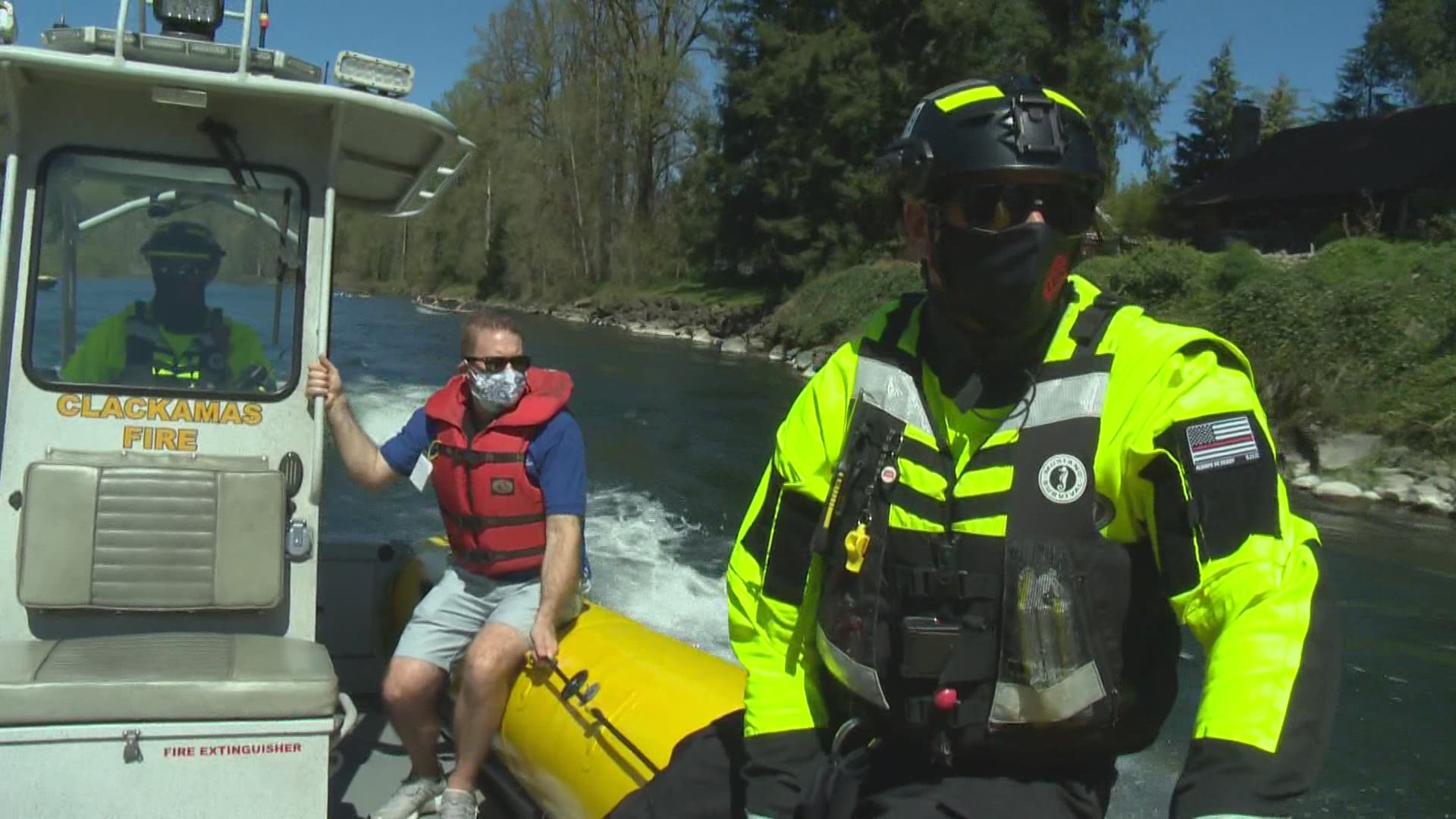SEATTLE — The stretch of sunny, warm weather is expected to continue across western Washington this weekend, with temperatures reaching near 80 degrees in some places.
But don’t let the summer-like temperatures fool you: Washington’s lakes and rivers are still dangerously cold.
While the air temperature may be in the 70s and 80s, the water temperature in rivers and lakes will mainly be in the upper 40s, the National Weather Service (NWS) said.
Cold water shock occurs when the body is suddenly immersed in cold water and can become deadly in about a minute. A person will start to involuntarily gasp or hyperventilate, which may lead to cardiac arrest.
“Cold water can be more draining on the body than cold air,” said Tammy Owen, with Clackamas Fire and Rescue. “So, that sudden shock of cold water can lead to sudden changes in heart rate, blood pressure and breathing.”
Sudden gasps of air and rapid breathing from cold water shock can create a greater risk of drowning for even the most confident swimmers. The NWS said cold water shock can impair decision making and also restrict movement in your arms and legs.
A person can lose muscle control in less than 10 minutes after falling into cold water, the NWS said, which makes keeping your head above water difficult. Longer exposure can lead to hypothermia and even death.
East Pierce Fire said many drowning victims die within the first few minutes of unexpectedly falling into cold water.
Personal flotation devices, such as a life jacket, significantly increases your chances of surviving after falling into the water.
As of Friday, the waters of Puget Sound were between 46-50 degrees, and Lake Washington was about 46 degrees. Experts consider cold water to be anything less than 70 degrees.
If you’re planning to go out on the water this spring, here are a few safety tips to remember:
General water safety:
- Supervise children at all times.
- Take swimming lessons and never exceed your abilities.
- Go to bodies of water that you are familiar with.
- Always wear a well-fitting Coast Guard-approved life jacket when near or in water.
- Remember that boating/swimming and alcohol are a dangerous combination.
- Always swim with a buddy.
- Notify others of your plans to be on the water and a return time.
- Take a cell phone with you.
Rivers:
- Wear the appropriate equipment. In addition to a life jacket, consider a helmet and foot covering.
- Use a professional rafting company.
- Avoid cheap/inexpensive rafts that can be easily damaged by branches and stumps exposed on the river.
- Know that river water temperatures are typically in the low 50s.
Lakes:
- Obey boating laws and rules for the particular lake you are on.
- Watch for swimmers, those fishing and other boats/watercraft.
- Know ahead of time about any underwater obstructions such as tree roots or branches.
- Swim at lakes that have lifeguards.
The Red Cross suggests people should never swim alone and recommends designating someone to watch the water if you are swimming with a group of people.
Despite what’s portrayed in movies, people who are drowning often don't call for help. It can be a silent tragedy with plenty of people nearby who didn't realize someone required help.

